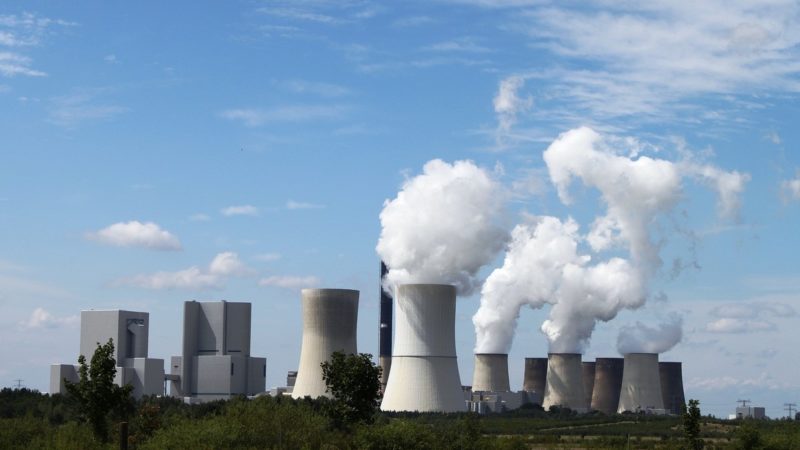'Centrism, leaving things much as they are, is no longer practically possible,' says Natalie Bennett

That we have a Far Right government has become clearer than ever this week, demonstrated by events from the release of the Integrated Review of Security to the rush towards the Policing Bill.
What makes that fact harder to identify than usual is that this is not, some individual racists and authoritarians apart, an ideological Far Right government.
It is a Far Right government because it has identified that swooping in that direction, not just pushing the boundaries of what has been considered acceptable mainstream political discourse but smashing through them, is the best way to hold up its vote in the current political landscape.
The driving force is a Trumpian core vote strategy. That doesn’t rely on being coherent, on making sense or on bothering about the traditional mainstream of its party, which the leadership assumes will stick with it no matter what (as proved all too true with the US Republican Party).
The strategy only needs to get a relatively small numbers of voters (and crucially social media users) revved up, energised and active. They’ll then do the campaigning work for the government – spreading its message. Even many of those made uncomfortable by it will notice – and vote – while many will turn away from politics entirely in disgust.
This is a strategy that relies on setting up straw men – like some kind of “threat” from a tiny number of desperate refugees risking their lives to cross the Channel – then setting them on fire.
It means announcing a rushed plan for a Policing Bill to demolish basic rights, then letting it drift, content in the knowledge that with the local, regional and national elections (Wales and Scotland) only weeks away, your voters will have seen the signal loud and clear.
In previous times either of those events would have dominated the news for weeks, been analysed, dissected, explained.
But in the Culture Wars, the aim is to just keep flinging weapons. Even nuclear weapons.
The announcement of an increase in the cap in the UK’s number of nuclear warheads was met with anger and bemusement from the military establishment – from a former First Sea Lord to a former SAS chief.
But military figures are on a battleground that their training and experience has not prepared them for, the Culture War. The new nuclear warheads are really not aimed at the Russian or the Chinese, or some shadowy band of cyber warriors, but at explosively heating up our own islands – at vaguely reminding voters of Corbynite politics that was so unpopular in “Red Wall” territory and spreading general fear and loathing.
So what do those opposed to the Far Right do?
Of course we have to call out the behaviour, combat the weapons, allow our anger to be evident. Otherwise the Far Right will become seen as the normal, the standard, the way things have always been. The danger must be named, the reality must be identified.
But there’s a great danger in doing that necessary work, one that the military knows well, in fighting your opponent on the ground of their choosing, where they’re always on attack and you’re grimly defending.
What also needs to be done is fight back with a different weapon, to open up a different front by setting out a vision of a positive, hopeful, inclusive future, one where we are not an isolated group holed up in Fortress UK, grimly fighting of intruders, clinging to ill-gotten gains, defending historic hierarchies.
Campaigns for a Universal Basic Income, for a four-day working week as standard with no loss of pay, for restoring and rewilding our countryside, for a just transition to a climate-safe society are doing this work.
Where its frighteningly rare is in the mainstream of our politics – on the nightly news, in the parliamentary chambers, even on the social media channels.
We have to get the balance of our politics right, between offence and defence. But above all we have to be clear about what is happening.
Centrism, leaving things much as they are, is no longer practically possible, given our climate emergency and nature crisis, the levels of poverty, inequality and insecurity that the current economic structures deliver. That entirely evident to the public.
They want a clear message of change, and strong emotions to match up to the evident urgency.
Hope is the opposite of fear, plenty the opposite of scarcity, care the opposite of hate.
We have to spread the understanding that there are more than sufficient resources for everyone on this planet to have a decent life while we protect the climate and restore the natural world means a hopeful, plenteous, caring world.
We need a stronghold, a castle of hope, a place of care where people will naturally flock, within strong walls built from respect for the rights and dignity of all. That’s a crucial step in pushing the Far Right threat back out into the fringe badlands.
To reach hundreds of thousands of new readers we need to grow our donor base substantially.
That's why in 2024, we are seeking to generate 150 additional regular donors to support Left Foot Forward's work.
We still need another 117 people to donate to hit the target. You can help. Donate today.



